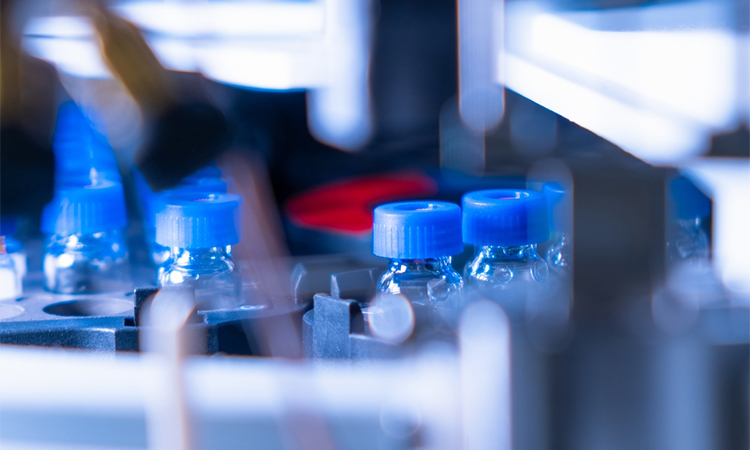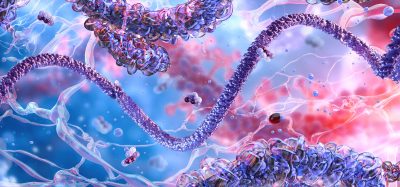New biomarkers found for diabetic kidney disease
Posted: 29 December 2023 | Ellen Capon (Drug Target Review) | No comments yet
Biomarkers found through urinary and exosome proteome profiling have potential for diagnosis and disease monitoring.


Scientists in China have published their findings1 regarding novel biomarkers, which they hope will benefit patients by identifying the disease at an earlier stage. Minjia Tan’s group from the Shanghai Institute of Materia Medica, Chinese Academy of Sciences, and Shichun Du’s group from Xinhua Hospital affiliated to Shanghai Jiaotong University School of Medicine, analysed urinary and exosome proteome profiling and discovered biomarkers for diabetic kidney disease (DKD).
Diabetic kidney disease
DKD is a major microvascular complication of type 2 diabetes mellitus (T2DM). It is the most common cause of the end-stage renal disease (ESRD) and despite intensive treatments such as hyperglycaemic control, blood pressure control and the use of renin-angiotensin system blockades, the prevalence of DKD remains high.2
Typically, the clinical presentation of DKD is characterised by a slow progression from microalbuminuria to macroalbuminuria (ie, increasing levels of the protein albumin in the urine) and by a hyperfiltration at the early stage and progressive decline of renal function at the late stage. However, recent studies indicate that DKD patients have a variety of clinical presentations and progression rates to ESRD.2 Although scientific understanding of DKD has improved, the need for specific biomarkers is crucial.
Proteomics analyses
Researchers Shichun Du, Linhui Zhai, Shu Ye and their colleagues completed large-scale urinary proteomics (n = 144) and urinary exosome proteomics (n = 44) analyses on patients with T2DM in varying degrees of albuminuria.
One advantage of using exosomes as a starting material for biomarker discovery is that exome isolation helps to minimise highly abundant proteins in urine and enriches a subproteome that includes membrane proteins and cytosolic proteins. Other advantages are that urinary exosomes contain important information from broad epithelial origins, meaning that they can be used to discover the physiological or pathophysiological processes in almost every epithelial cell type facing the urinary space. Also, proteomic analysis of urinary exosomes identifies proteins known to be involved in specific kidney diseases,3 as was the case in Minja Tan’s and Shichun Du’s study.
The researchers obtained 144 urine specimens from 144 clinical patients, which included 19 healthy control (HC) individuals and 125 patients with DM. Within the DM group, 74 patients were in DM1 stage with the ACR value < 30 mg/g, 36 in DM2 stage with 30 mg/g ≤ ACR value ≤ 300 mg/g and 15 in DM3 stage with the ACR value > 300 mg/g.
The findings showed the dynamic characteristics of the urinary and exosome proteomes in T2DM patients in varying degrees in albuminuria. All the proteins were classified into six clusters according to their expression patterns during DKD progression. The proteins involved in glycolytic and ubiquitination processes were drastically decreased from HC to DM1 while slowly decreasing from DM1 to DM3 stage. Contrastingly, as DKD progressed, the expression of proteins involved in lipid transport and cholesterol esterification gradually increased and reached a peak at DM3 stage. Proteins mainly participating in carbohydrate metabolic processes were highly expressed in patients with DM and then decreased with DKD progression.
Further discovery
The researchers also found and verified proteins like SERPINA1 and TF in another cohort of diabetic urine samples with varying degrees of DKD. These had the potential to be used as possible biomarkers for DKD diagnosis or disease monitoring. With greater insight into the indicators of renal disease, the ultimate hope is for improved treatments that can be administered at earlier stages of the condition.
References
- Du S, Zhai L, Ye S, et al. In-depth urinary and exosome proteome profiling analysis identifies novel biomarkers for diabetic kidney disease. Science China Life Sciences. 2023 Jun 30;66(11):2587–603.
- Hoorn EJ, Gonzales PA, Gross P, Frokiaer J, Knepper MA, Pisitkun T et al. Prospects for urinary proteomics: Exosomes as a source of urinary biomarkers (Review Article). Nephrology [Internet]. 2005 June 14 [cited 2023 October 13]; 10(3):283-290. Available from: https://onlinelibrary.wiley.com/doi/full/10.1111/j.1440-1797.2005.00387.x
Related topics
Proteomics
Related conditions
Diabetes






